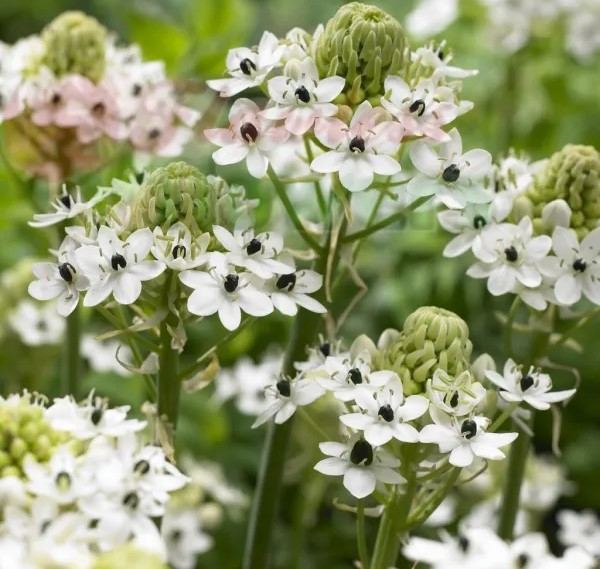Kiambu,
Thursday April 4, 2024
KNA by Wangari Ndirangu
Kenya flowers are sold in more than 60 countries.
Over 500,000 people, including over 100,000 flower farm employees depend on the floriculture industry that impacts over 2 million livelihoods.
Kiambu County is among Counties that produce various varieties of flowers for not only the local market but also for export.
Farmers however continue to shy away from venturing into new types of ornamental crops due to uncertainty of farming practices and availability of markets.
For Gabriel Mbugua growing up and becoming a farmer was always in his mind, but never in his years had he thought of venturing into the flower business.
In 2021, he embarked on agroecology farming with the primary focus being on environmental conservation – a commitment to Mother nature.
Little did he anticipate that beyond its ecological benefits and the production of safe foods agroecology farming would emerge as a lucrative income stream and its revolution transform his fortune.
Mbugua who resides in Kamburu, a Sub location within Gatamaiyu Location, Lari , Kiambu County and whose major economic activities is majorly on dairy farming and tea farming cultivates a variety of crops but what stands out prominently in his farm is Arabicum, an ornamental flower.
Arabicum is an annual flower used in fresh bouquets and has been gaining popularity among small scale farmers in the country because they are easy to grow and yield higher returns to farmers.
In Kenya the price of arabicum is Ksh13.56 to Ksh 15.14 per stem but within the field for generations normally attracts even higher prices.
Mbugua said, he is one of the beneficiaries who received education on agroecology farming from Institute for Culture and Ecology (ICE) in order to conserve the environment and produce safe foods.
ICE has been working with small holder farmers since 2013 to revive their hope through promotion of agro-ecological farming.
Leveraging a collaborative group effort, Mbugua says that he now exports these summer Arabicum flowers to the Netherlands, a pivotal market for their produce.
“Farmers in this area transitioned to organic farming and this has attributed to the surge of improved healthy flowers that we never used to cultivate before and we have experienced a substantial increase in earnings “, he explained.
Before adopting agroecology practices, his weekly flower harvest amounted to 5,000 stems. However, with the transition, this figure has risen to an impressive 7,000 stems.
Mbugua says the valuation of these flowers is based on length and strength, with longer and sturdier stems commanding higher prices.
The flowers are categorized in three height brackets—60cm, 70cm, and 80cms, Mbugua says, adding that organic farming, especially the use of Bokashi bio-fertilizer and boosters, has significantly contributed to the increase in stem height, surpassing the 80cm threshold.
Due to the ecofriendly nature of using bio-products that are safe, Mbugua says that European buyers, particularly those within the European Union, have shown immense interest in his flowers.
“During off-seasons, they closely monitor the resumption of production since they have been emphasizing on environmentally sustainable farming practices and also advocating for a collective shift towards agroecology”, he said.
Even as Kenya relies on the European Union for over 80 percent of its fresh produce market, aligning with these agro ecological trends positions farmers like Mr. Mbugua at the forefront of a burgeoning global movement.
According to experts, Arabicum grows best in a cool climate at elevations of 1500-2000 Meters above sea level, requires a growing temperature of 22-28 degrees, deep fertile well drained soils preferably with a slightly acid to neutral PHIt is commonly grown in cool areas such as Limuru, Redhill, Kericho and Embu.
The main cut flowers grown in Kenya are roses, carnations, and Alstromeria. Other flowers cultivated include, Arabicum, Lilies, Statice, a range of summer flowers amongst many others.
The Agricultural Food Authority (AFA) Yearbook of Statistics 2022, In 2021, floriculture contributed Ksh 110.85 billion up from Ksh 107.51 realized in 2020 which was 3.1 percent increase from what was realized in 2020.
The volume increased from 146,033 tons in 2020 to 210,135 tons in 2021 accounting for 44 percent increase and the increase in value was attributed to high unit price for Kenyan flowers especially roses and cuttings.
Flowers exports accounted for 70 percent of total horticulture value with the leading flowers per value being roses, cuttings and mixed flowers.
Courtesy; KNA





